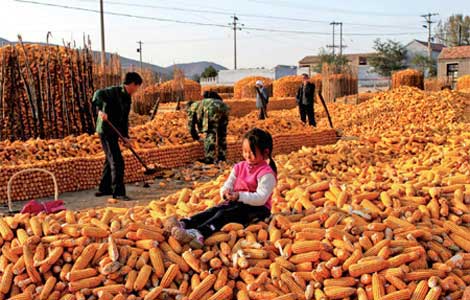Society
AIDS fund manager is hard to find
Updated: 2011-08-06 07:50
By Cheng Yingqi and Shan Juan (China Daily)
Most NGOs lack national scope needed to handle demanding task
BEIJING - China's search for a nonprofit group to help distribute funds it receives to fight the spread of HIV and AIDS could prove difficult because few seem qualified to handle the task, a senior health official said.
The Chinese Center for Disease Control and Prevention (CDC) launched an appeal last week for applications from grassroots organizations to handle a large portion of the money from the Global Fund to Fight AIDS, Tuberculosis and Malaria.
The move came shortly after the Geneva-based foundation suspended grants in late May, when it complained in a statement that China was not doing enough to involve community-based groups.
In response to that claim, Hao Yang, deputy director of the Ministry of Health's disease prevention and control bureau, said that few grassroots organizations on the Chinese mainland are capable of taking on such a responsibility.
"Currently, we can't find any Chinese nongovernmental organization working with HIV and AIDS intervention that is able to handle the job," he told China Daily recently.
Official data show that about 400 nonprofit grassroots groups were working on HIV and AIDS at the end of 2009, the most recent figures available. However, most were not registered with authorities, which hampers their fundraising and operations.
Local governments have only in recent years begun to create a favorable environment for community-based organizations. Michele Sidibe, executive director of UNAIDS, last month recognized that progress is being made, but the ability of grassroots groups to handle major projects is still limited.
Applicants must have a minimum of five years experience in the field.
But the average lifespan of community-based groups is one year, according to government sources.
Jia Ping, who works at the China Global Fund Watch Initiative, said the field should be broadened by making sure that applications are open to any entities working in HIV and AIDS prevention, such as academic institutions.
"At present, grassroots organizations working in the field are better at delivering services and usually operate regionally. So handling such huge funding nationwide would be beyond their scope," he said.
Since 2003, China received $539 million from the Global Fund to Fight AIDS, Tuberculosis and Malaria for 13 programs aimed at fighting the spread of tuberculosis, HIV and AIDS.
Before the funding was suspended, the foundation's money was distributed by the CDC to its 31 provincial branches. Once a grassroots organization is selected, it will help manage 25 percent of the money.
The Global Fund to Fight AIDS, Tuberculosis and Malaria published an announcement on its Chinese website on July 29 calling for grassroots organizations around China to apply.
"The latest move aims to further encourage the participation of community-based organizations committed to AIDS control, which has long been required by the Global Fund," Jia said on Wednesday.
The organization selected will be in charge of encouraging wider participation of nongovernmental groups in AIDS control campaigns. Interested grassroots organizations should submit their materials to the CDC within three weeks from July 29, the announcement said.
According to a Beijing Times report, the provincial CDCs mix the money from the Global Fund to Fight AIDS, Tuberculosis and Malaria with AIDS control funds from the Chinese government, which "set barriers to the management of the fund".
China Daily
(China Daily 08/06/2011 page4)
E-paper

My Chinese Valentine
Local businesses are cashing in on a traditional love story involving a cow herder and a goddess
Outdoor success
Lifting the veil
Allure of mystery
Specials

Sowing the seeds of doubt
The presence in China of multinationals such as Monsanto and Pioneer is sparking controversy

Lifting the veil
Beijing's Palace Museum, also known as the Forbidden City, is steeped in history, dreams and tears, which are perfectly reflected in design.

Beer we go
Early numbers not so robust for Beijing's first international beer festival
